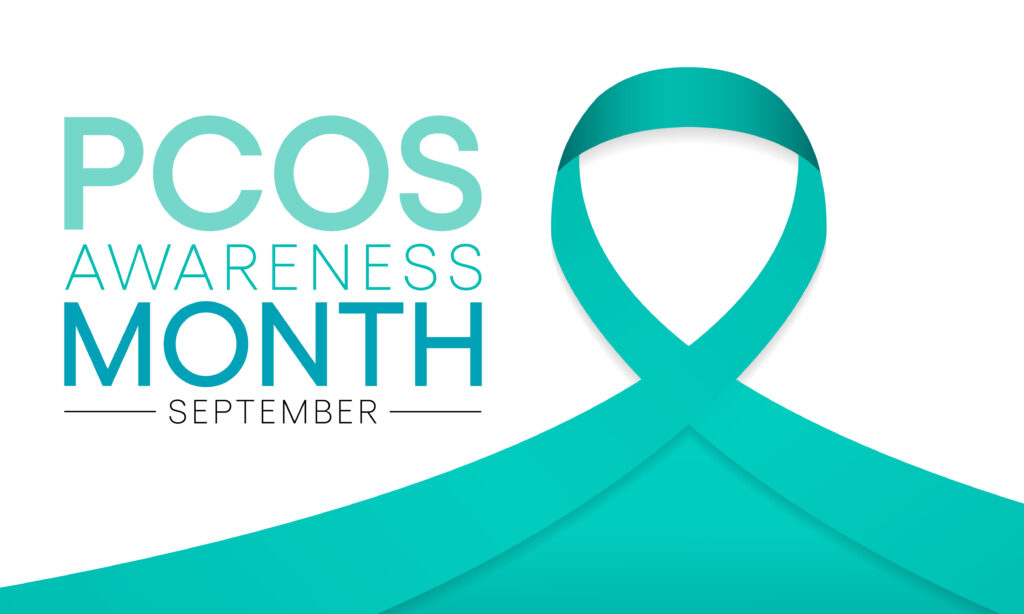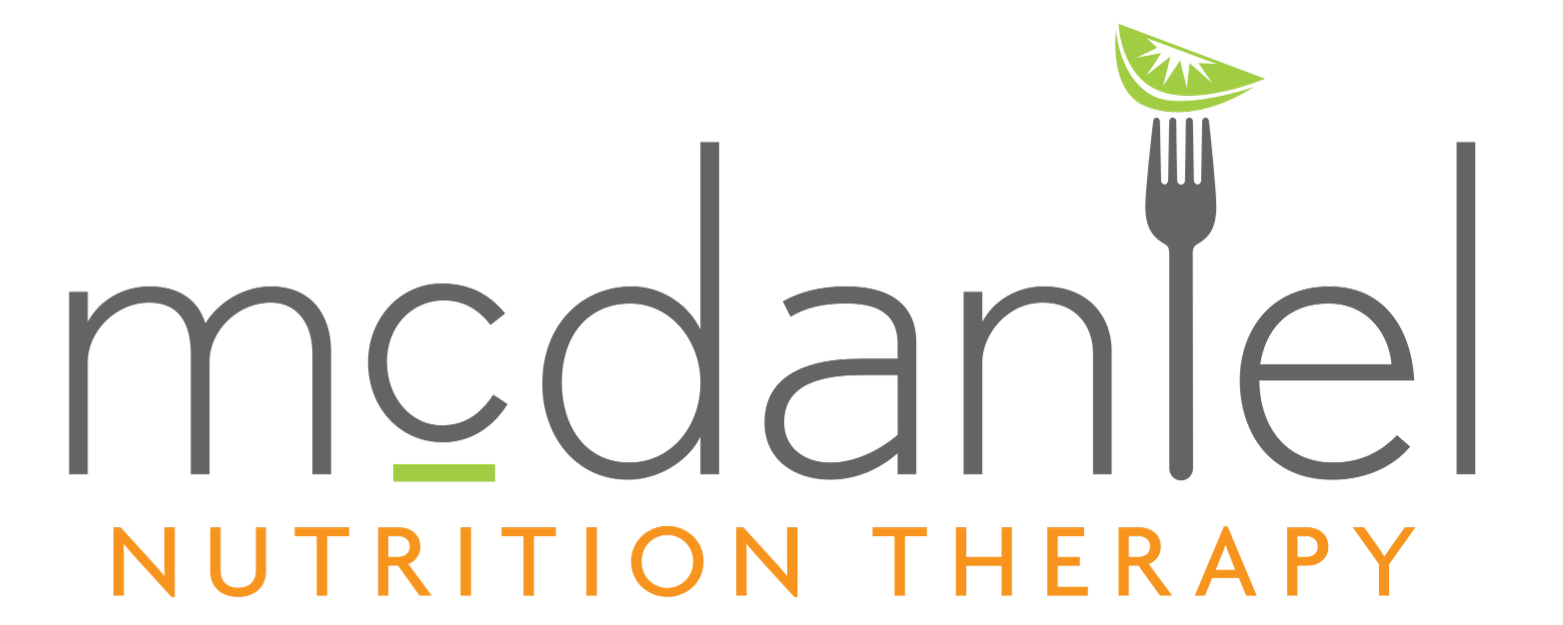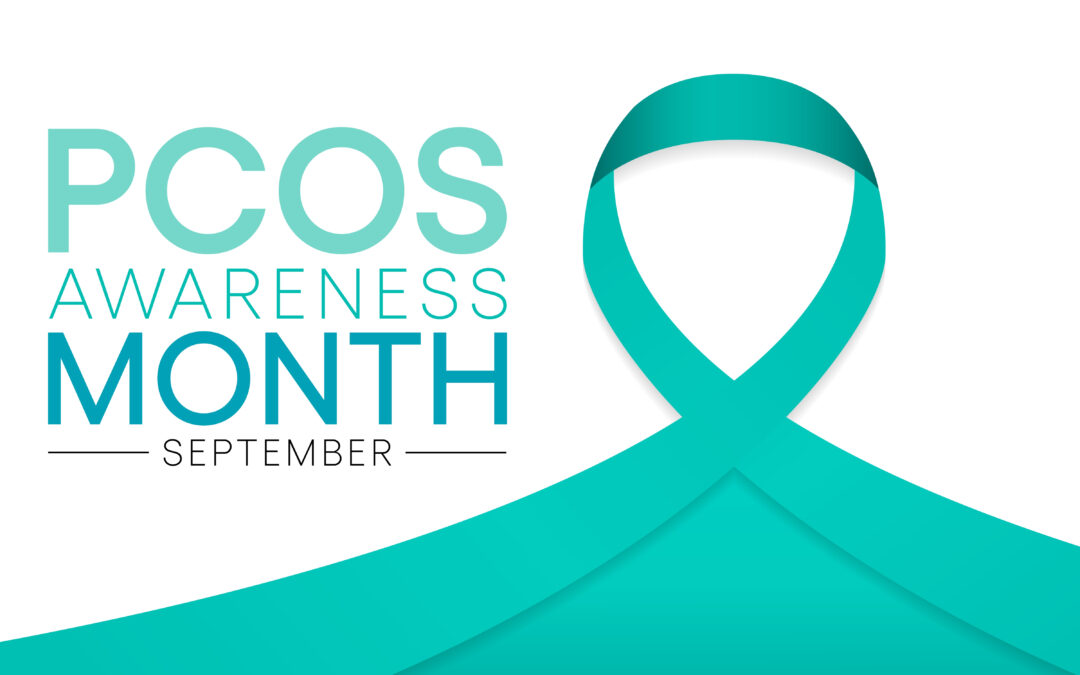A diagnosis of Polycystic Ovary Syndrome, commonly known as PCOS, comes when many women least expect it. Related to hormonal imbalances, PCOS is an endocrine disorder in which a woman’s ovaries become enlarged and develop cysts.
While many may have heard of PCOS in passing, most do not know that it affects 1 in 10 women of reproductive age and is a leading cause of infertility.

So why are we talking about PCOS here? In addition to menstrual irregularity and fertility issues, those living with PCOS often struggle with anxiety and depression, food cravings, and unintentional weight gain that resists weight loss efforts. While there is no cure, a combination of medical interventions and lifestyle changes, including dietary changes, can help you thrive with PCOS. Our team of dietitians here at McDaniel Nutrition Therapy have expertise in PCOS nutrition – we will help you sort out the facts from the myths!
When it comes to nutrition and PCOS, there is a lot of misinformation. Newly diagnosed women often leave the doctor’s office with general advice to “cut down on simple carbohydrates,” “eat fewer sweets,” “eat less bread, pasta, ________,” “eliminate gluten and dairy.”
By creating fear and confusion around what to eat, this generic advice often does more harm than good, leading women to cut out entire food groups and/or not eat enough. Stress about what to eat, and the physical stress of not meeting your body’s energy and nutrient needs, can actually worsen symptoms, creating a vicious cycle.

Practical PCOS Diet Changes
PCOS is often associated with low-level chronic inflammation. As such, solid nutrition guidelines for thriving with PCOS are built around the basics of an anti-inflammatory diet: vegetables, fruit, legumes like beans and lentils, whole grains, nuts and seeds, lean proteins, and heart-healthy fats like avocado, olive oil, nuts, and seeds. Incorporate sources of omega-3 fatty acids including salmon, sardines, and seeds like flax, hemp, and chia for additional anti-inflammatory benefits.
Simple strategies like pairing carbohydrates with protein, fat, and fiber and paying attention to portion sizes can help manage insulin resistance. Eating regularly throughout the day (not skipping meals) will help keep blood glucose levels stable and may help ward off food cravings. In addition to including a variety of nutrient-dense foods, targeted use of specific micronutrient supplements, including vitamin D, specific B vitamins, and magnesium may provide additional benefits for PCOS management.
Finally, food isn’t the only factor! Getting enough sleep, identifying and incorporating stress management strategies, and regularly engaging in movement that you enjoy round out the lifestyle changes that contribute to thriving with PCOS.
In addition to providing up-to-date, evidence-based nutrition information, a dietitian can help you set achievable goals and provide support as you work to make these lifestyle changes. Whether you are newly diagnosed, trying to conceive, or just want to take charge of your PCOS, working with a dietitian will give you the knowledge and confidence you need! Ready to get started? Call today for an appointment!

